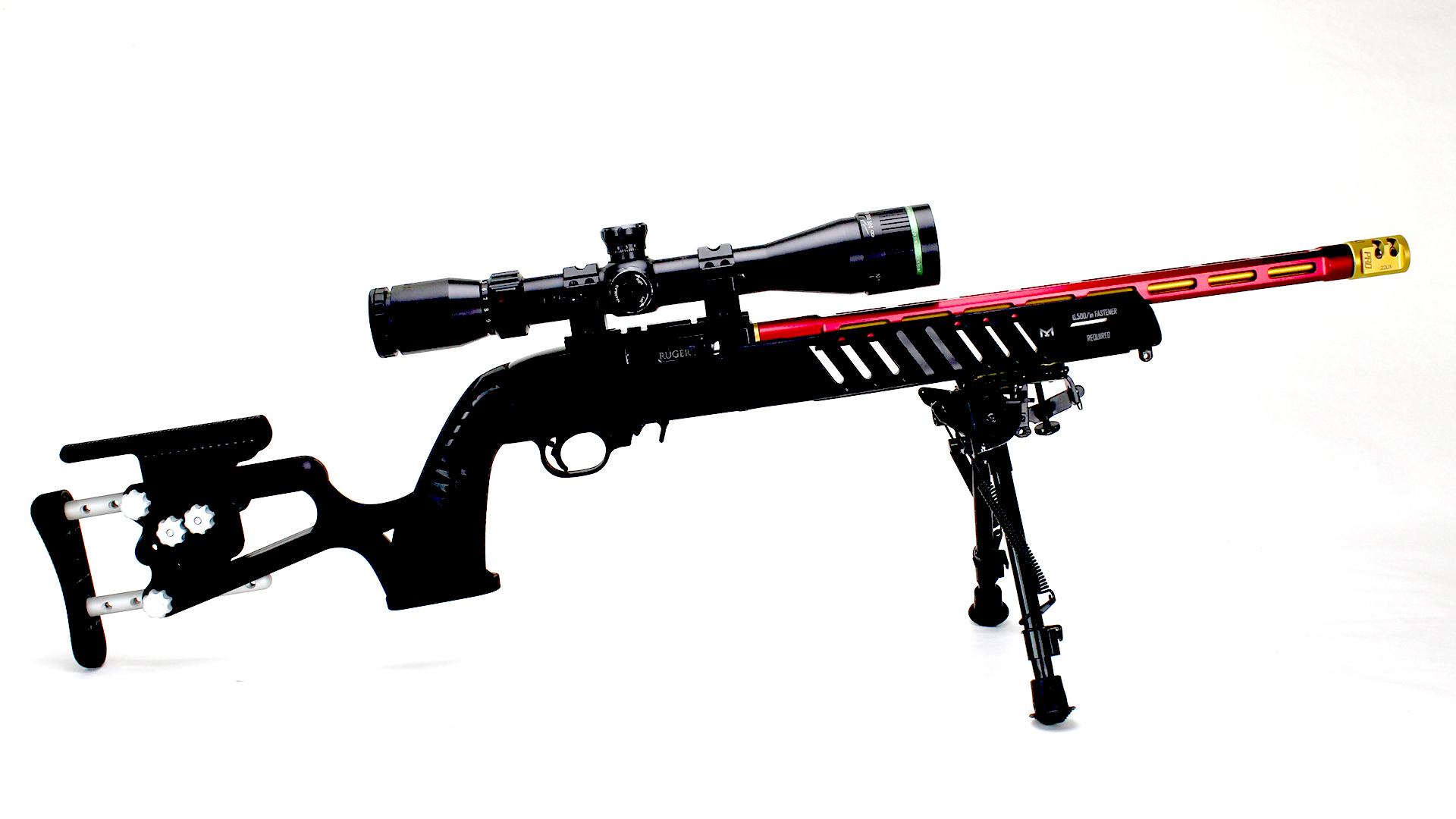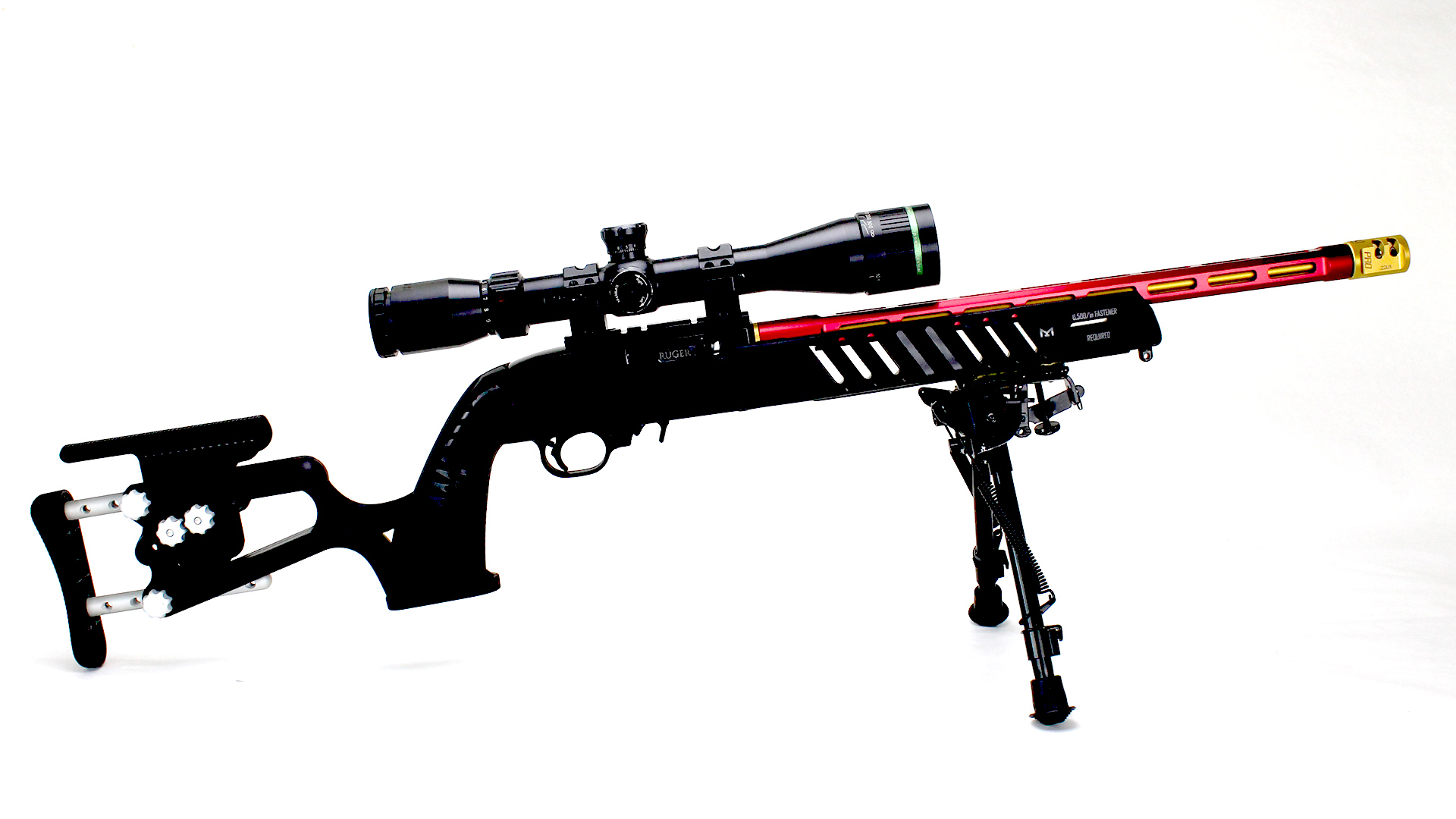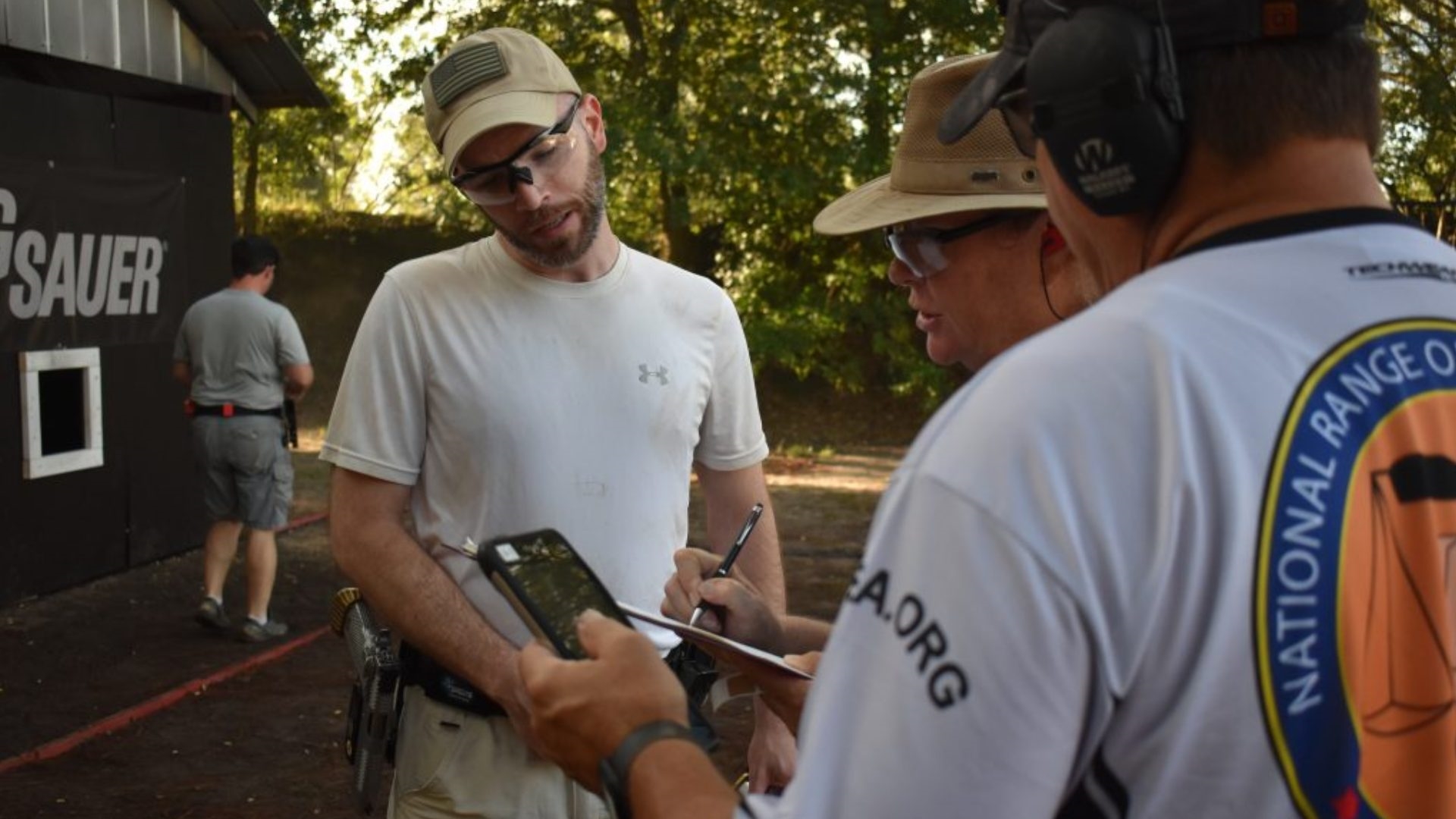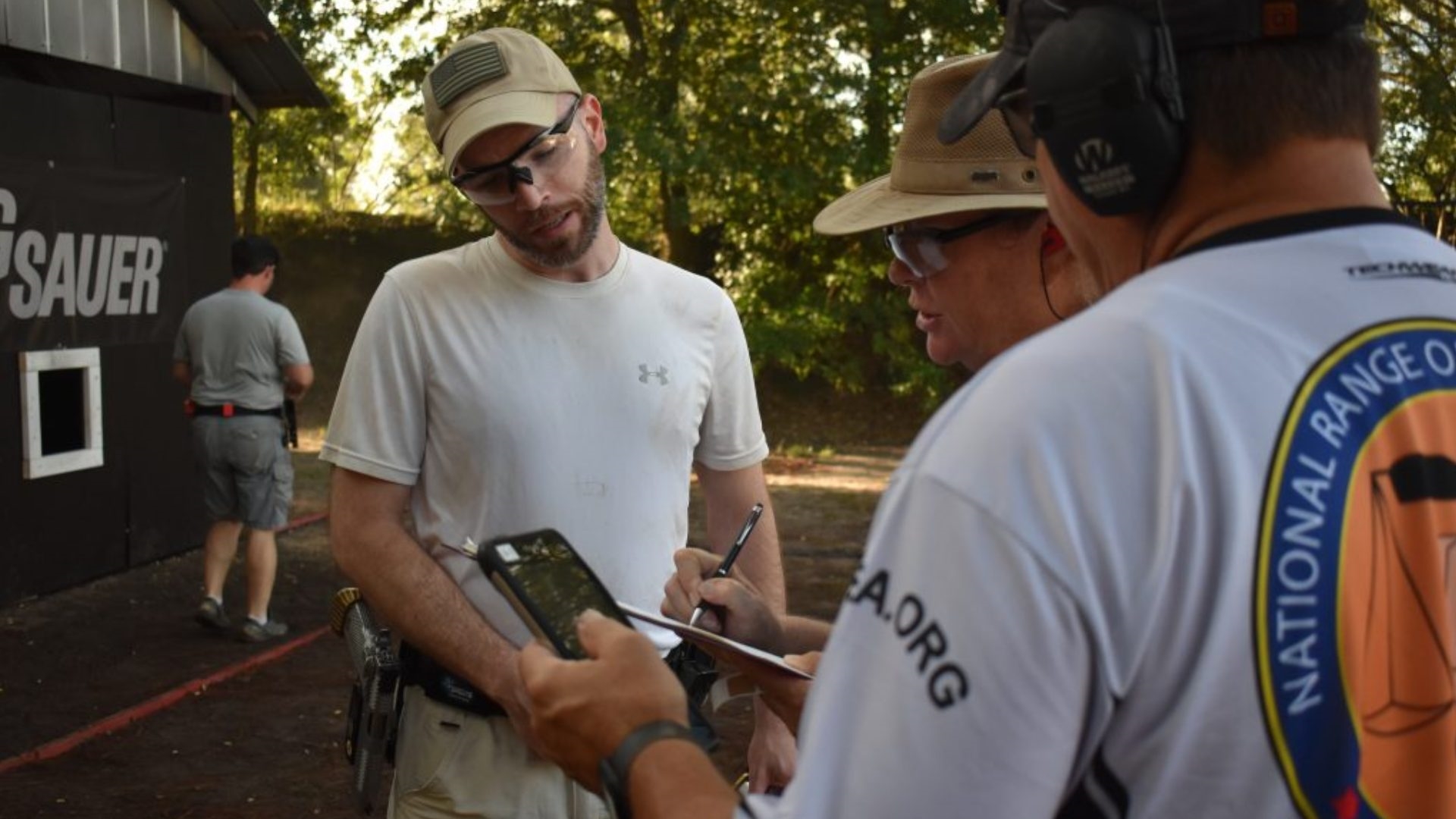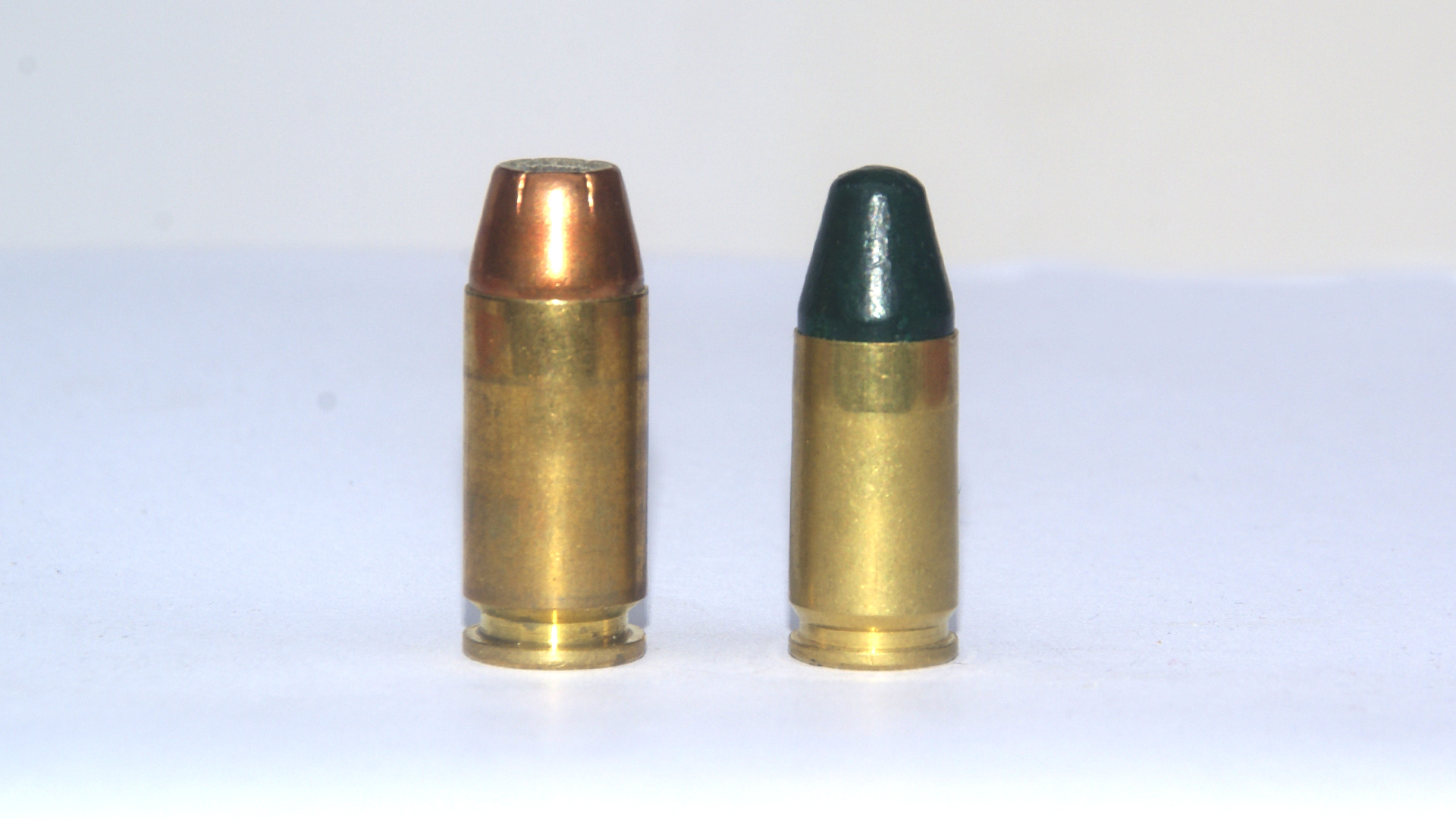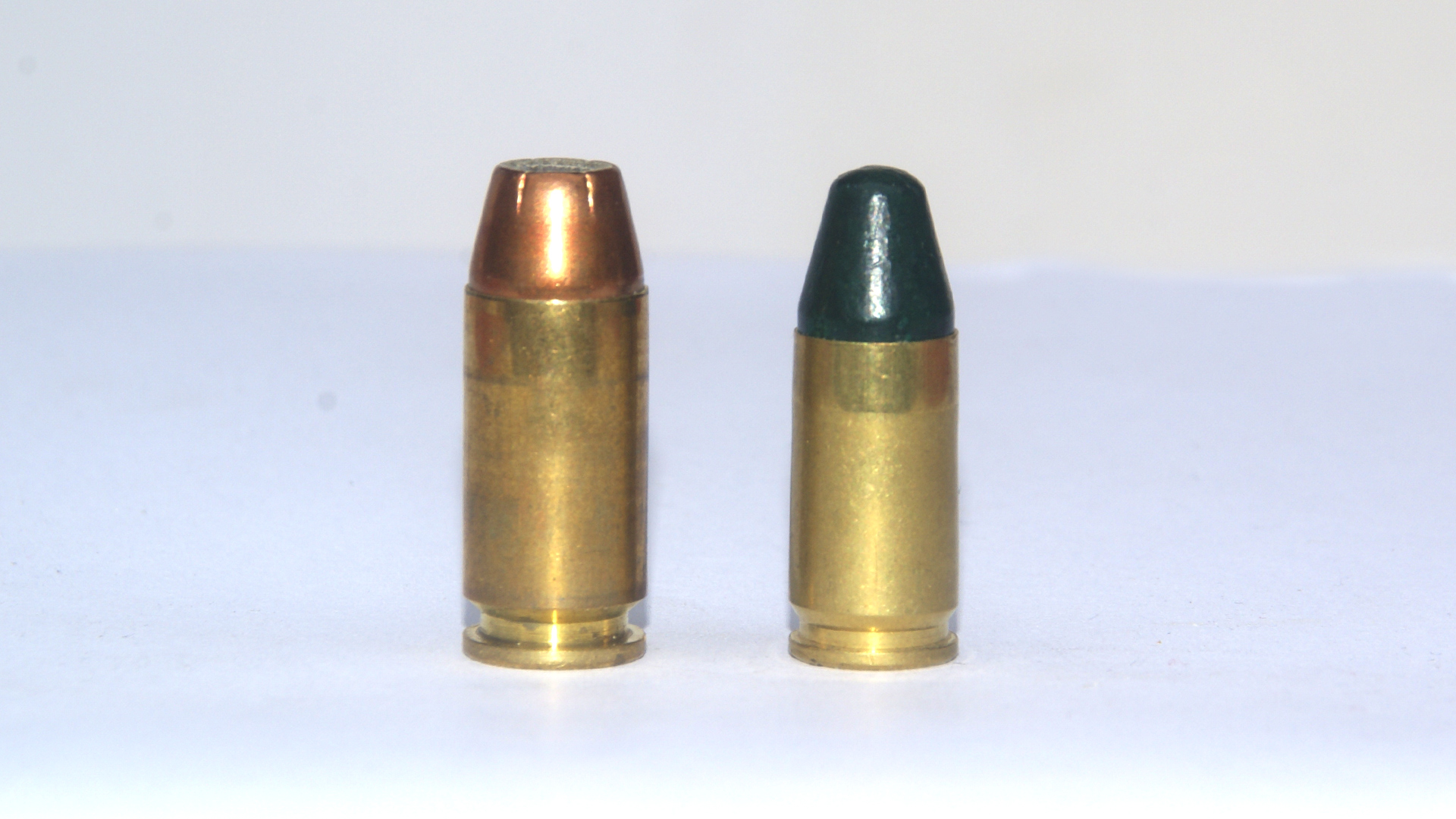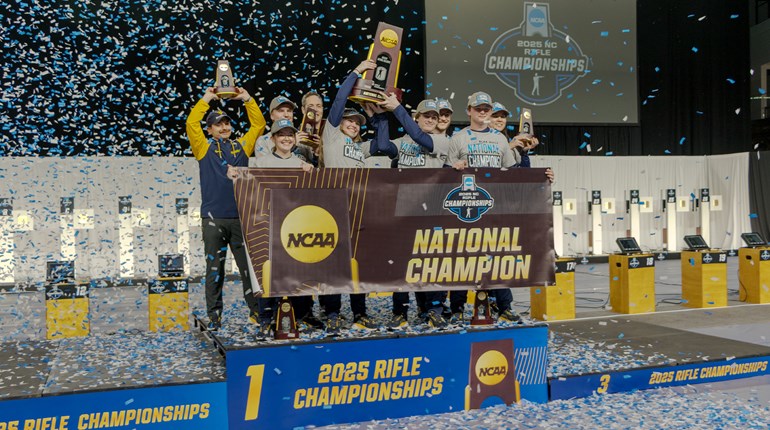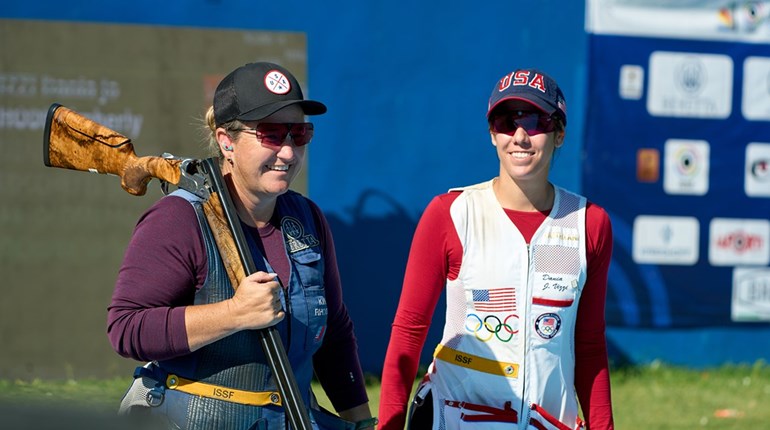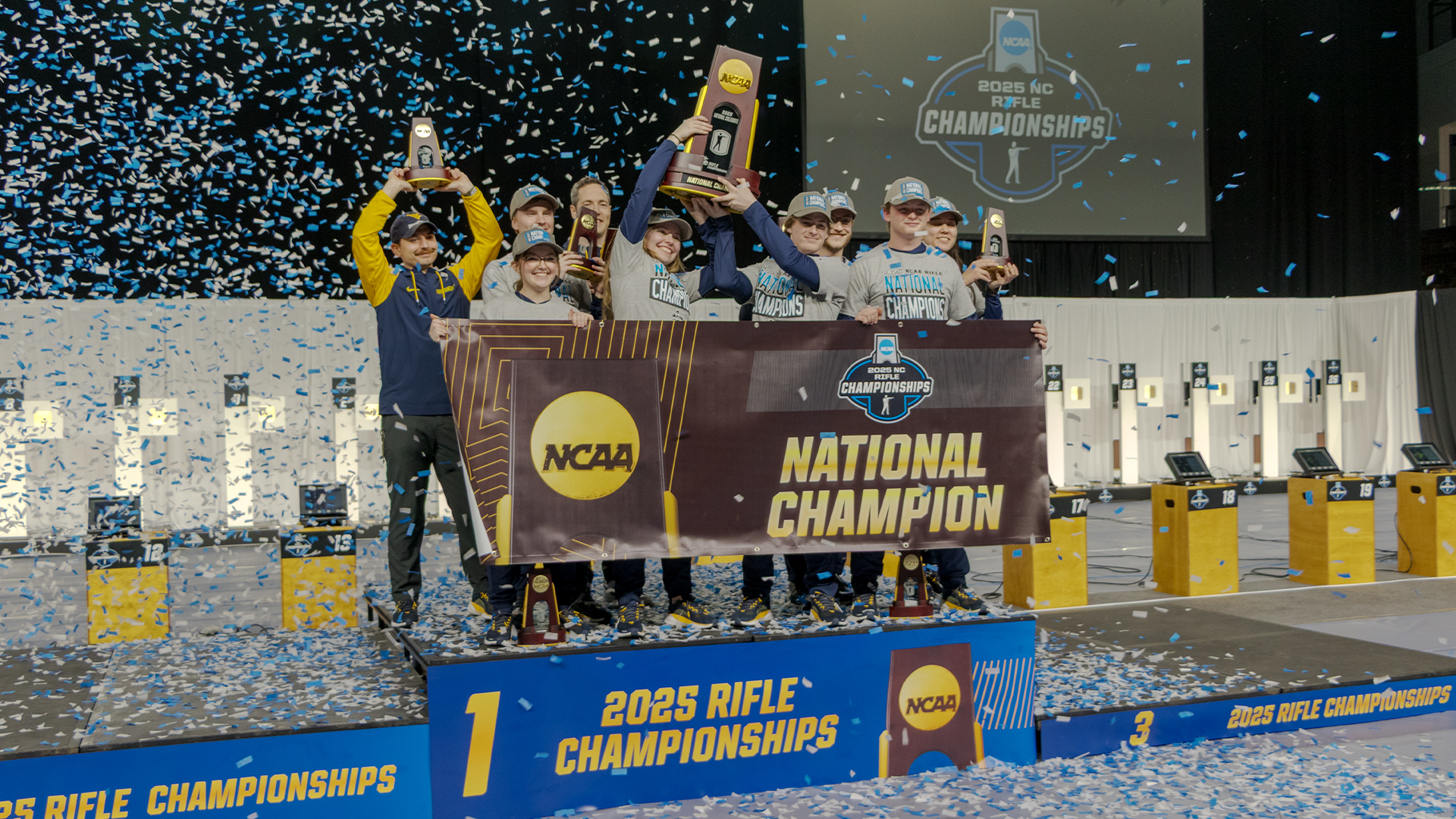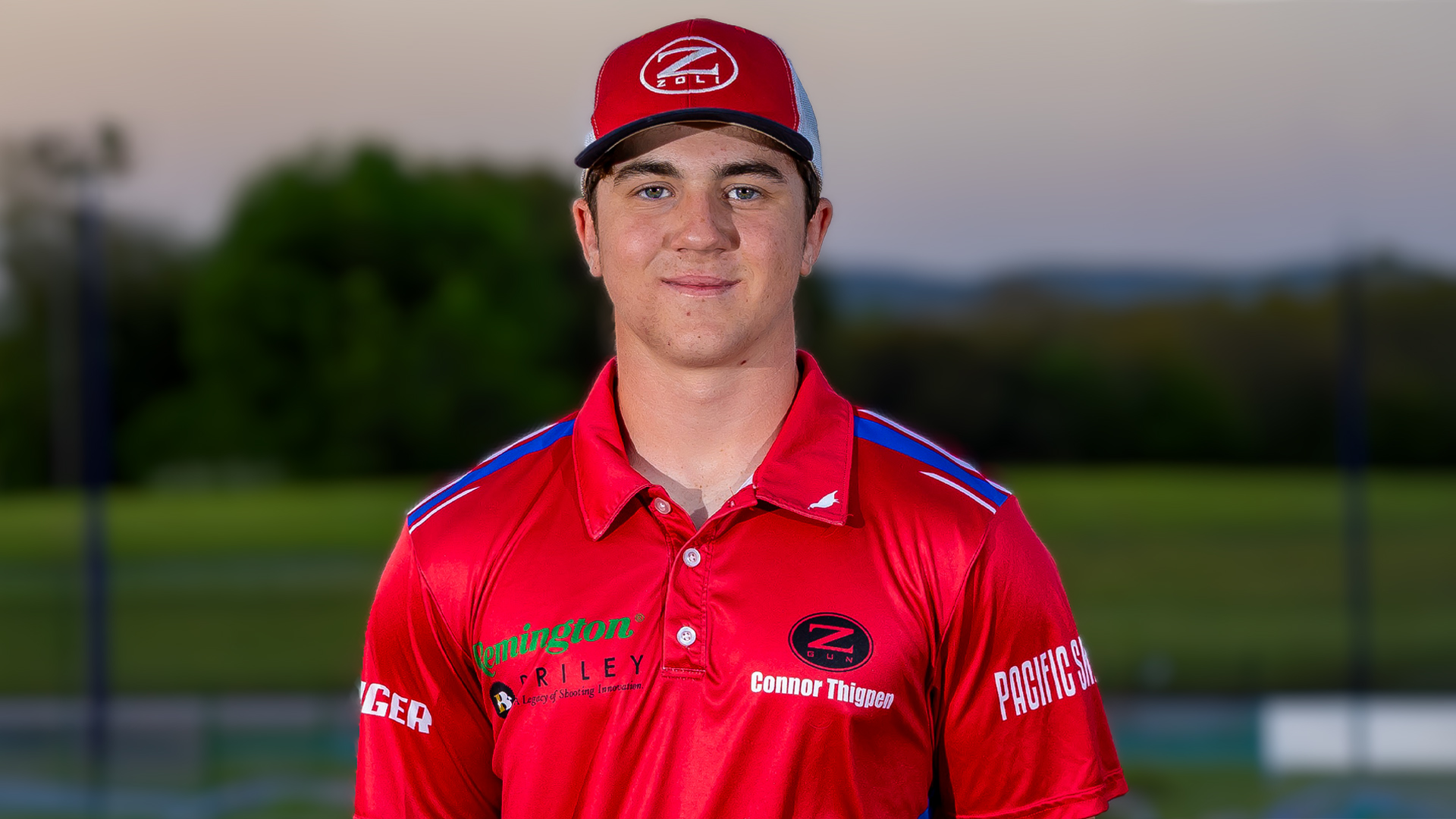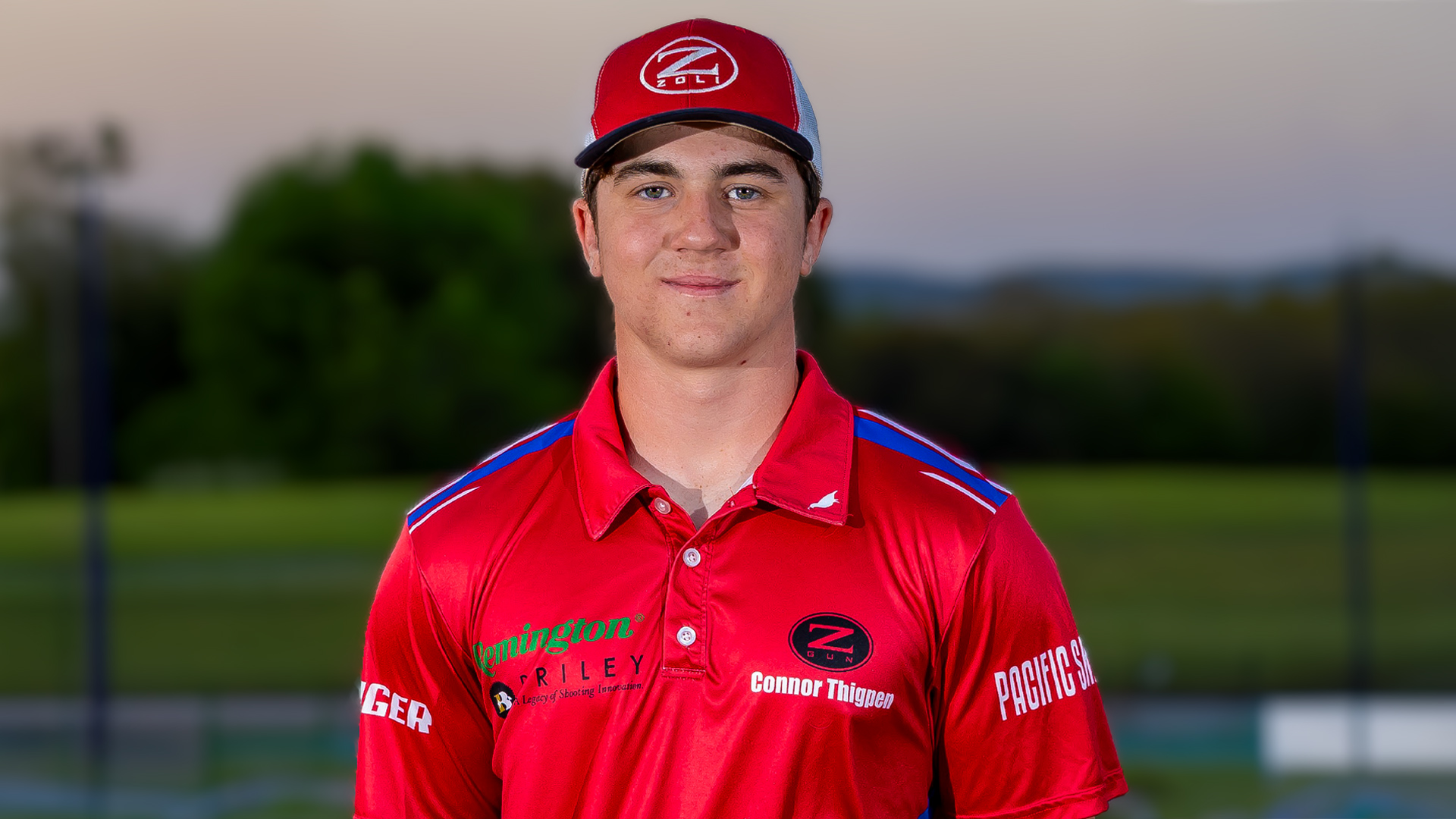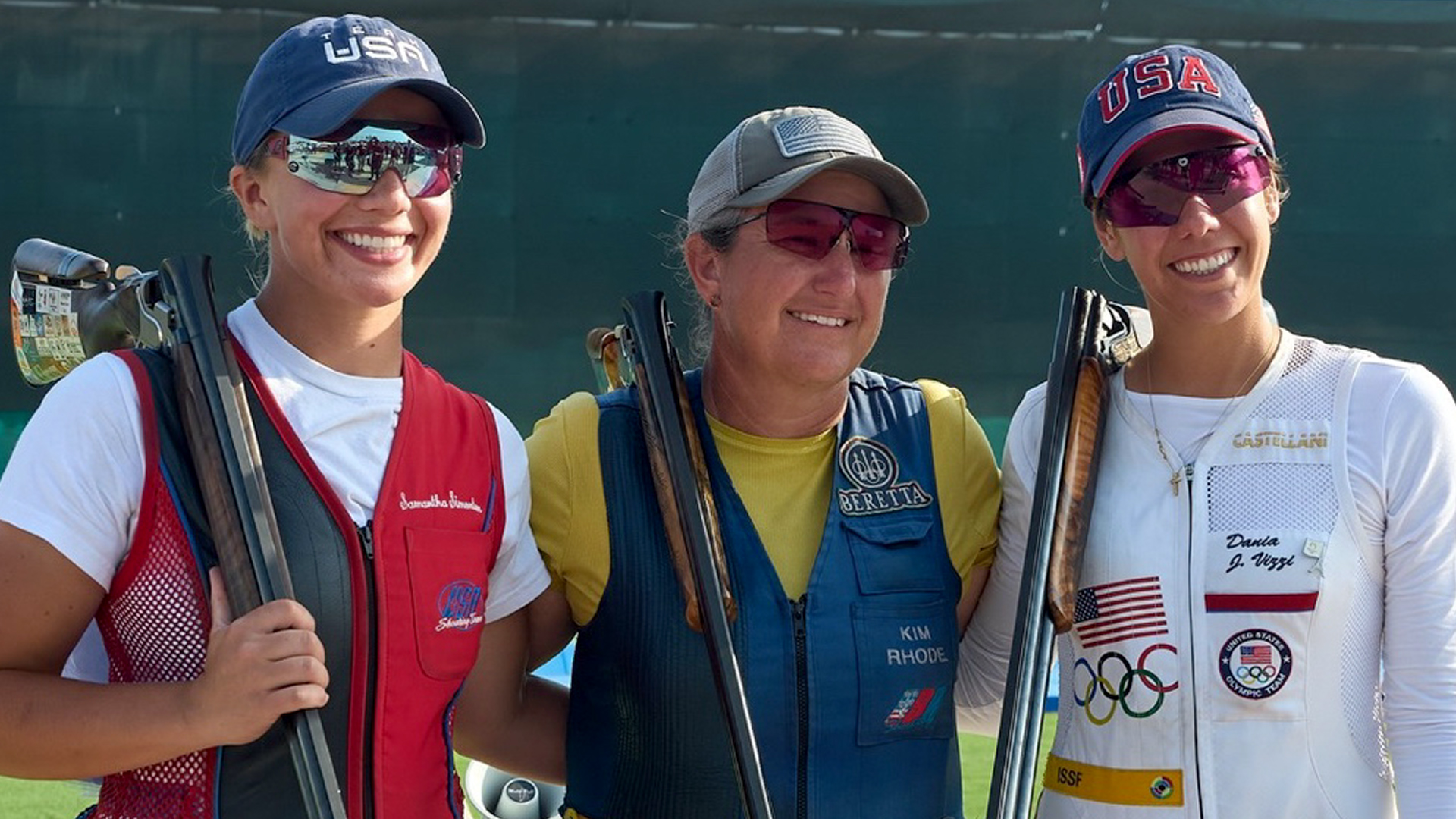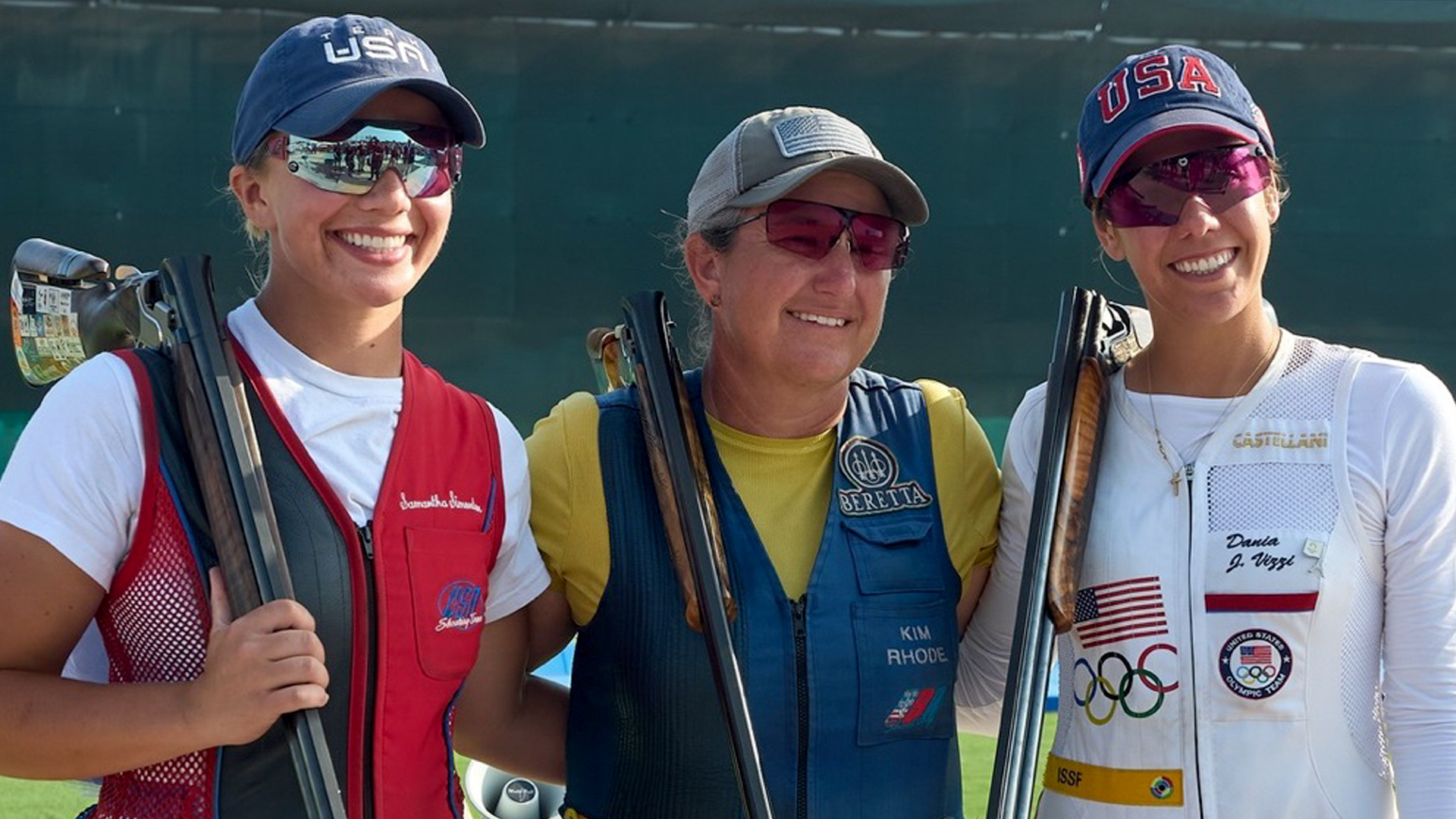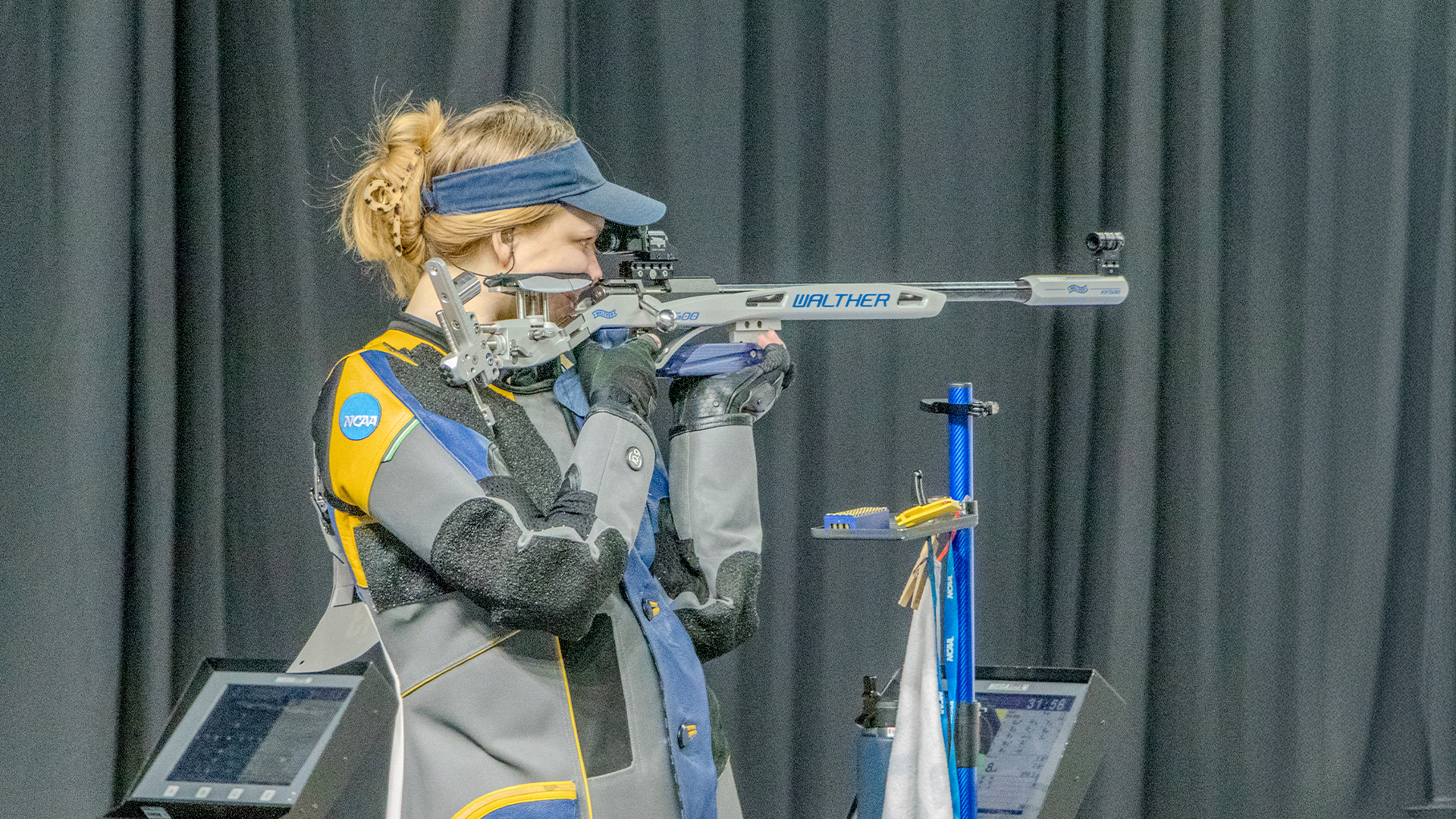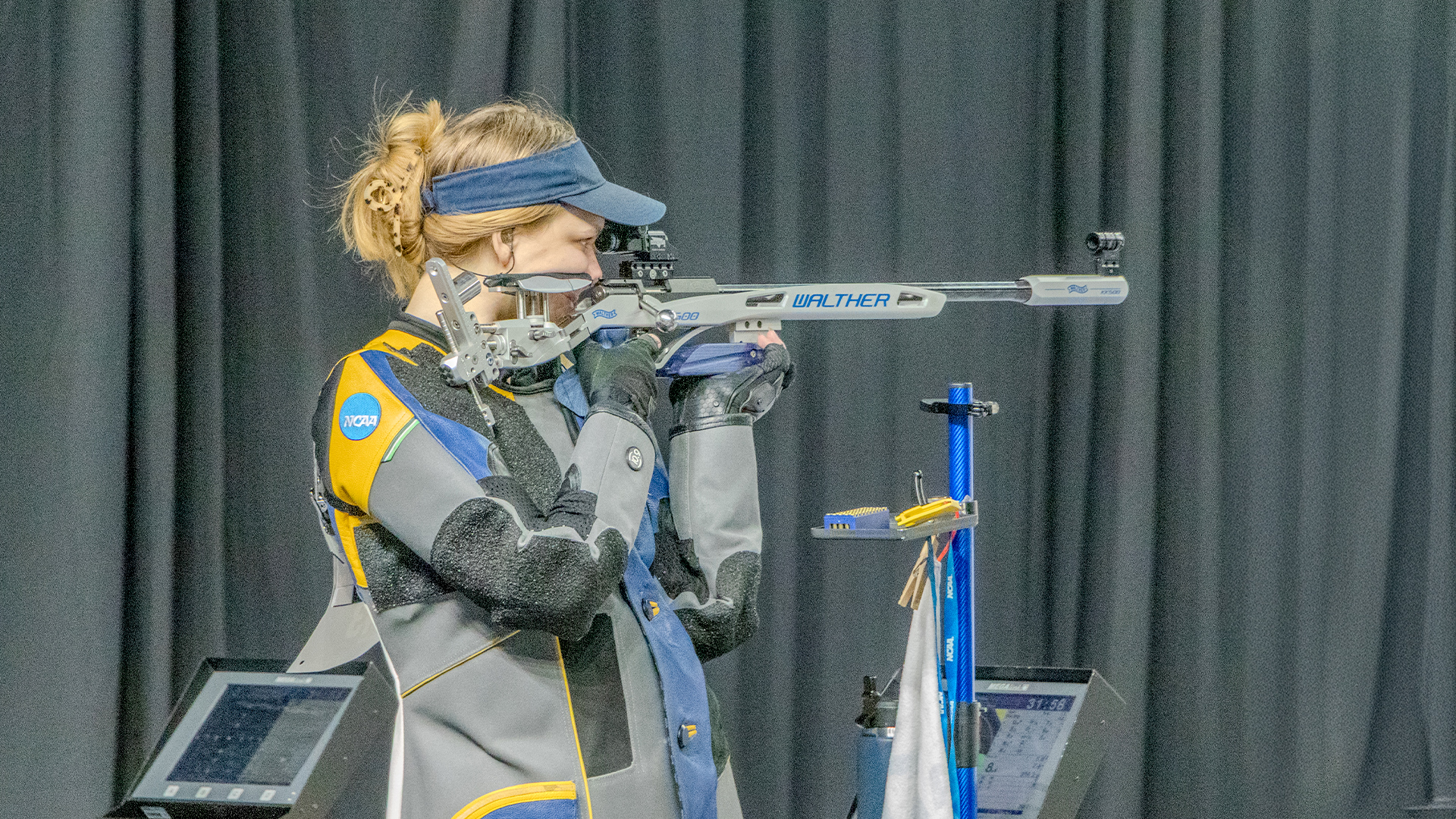
During the first few days at the Paris 2024 Olympics, it was beginning to look like heartbreak for Team USA in shooting events. With a dearth of medals after three days of competition, the dominating performances from the Tokyo Games were seemingly a thing of the past. Instead of recognizing U.S. shooters, headlines were dominated by meme-inspired stories, like South Korean pistol shooter Kim Ye-ji’s swagger and her “main character energy,” along with steely-eyed Turkish shooter Yusuf Dikec, who looked like he had just rolled out of bed when he secured a men’s 10m air pistol silver medal.
Things did turn around for USA Shooting in France this summer, with athletes picking up a total of five medals, including a gold medal performance from Vincent Hancock in the men’s skeet event, his fourth Olympic gold overall and the most in history by any skeet shooter.
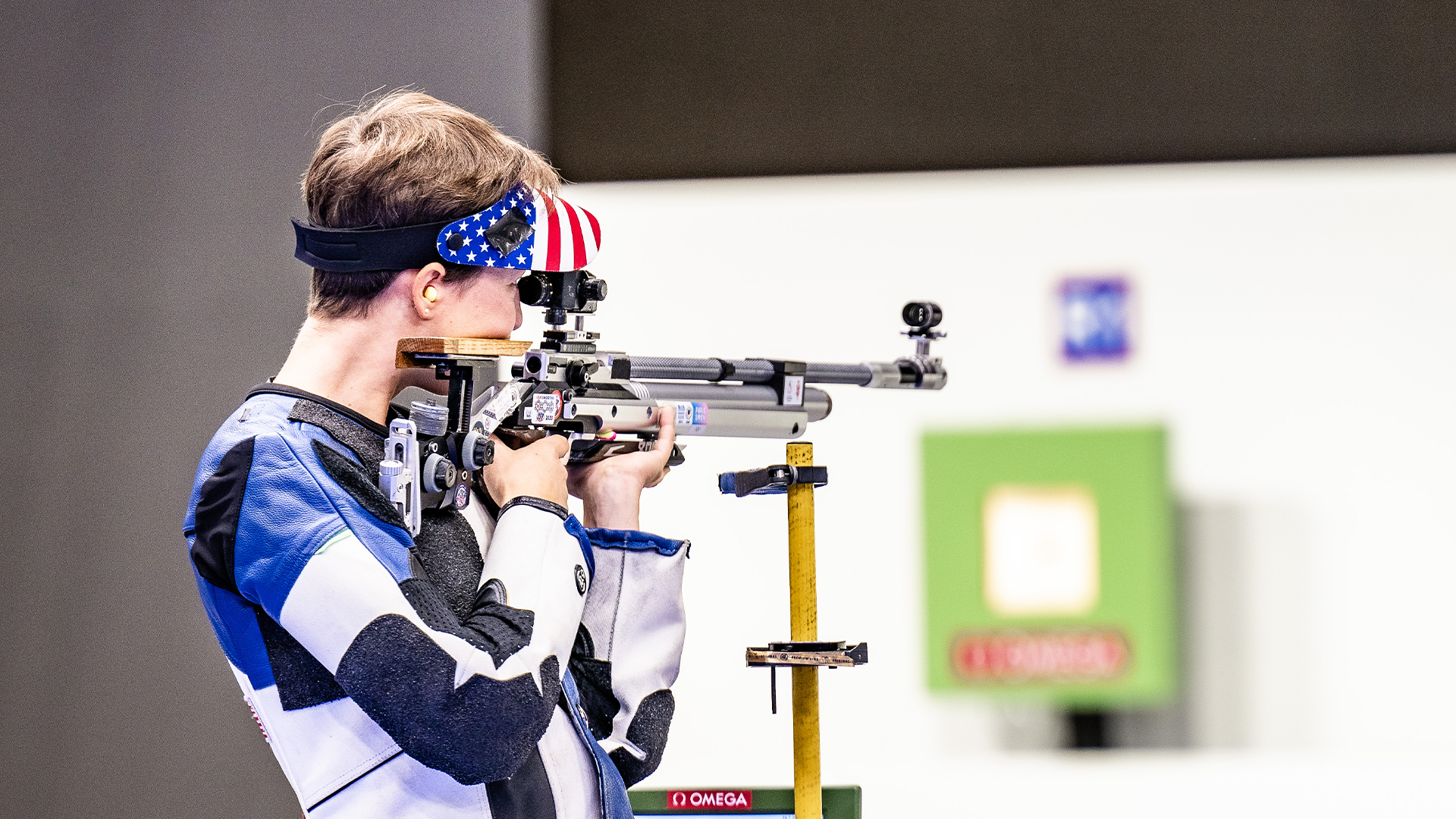
The shooting medal drought for Team USA ended courtesy of Sagen Maddalena, who bounced back after a fourth-place finish in women’s 10m air rifle to capture a silver medal in the women’s 50m smallbore event. Exiting qualification with the number one bib, she opened strong in the final, but slightly faltered after some bad shots during standing position, dropping to as low as fifth place in the rankings. Making her way through the elimination rounds, Maddalena eventually rocketed past Chinese shooter Quiongyue Zhang to earn the silver medal with a score of 463.0. “I assessed the mistakes. My setting was a little off, and I adjusted it and had to make good shots even though my heart was pumping. I was able to climb back up the ladder, and I am happy with that,” Maddalena said.

Hancock Makes History
After winning the men’s skeet gold medal at the Paris 2024 Olympics, Vincent Hancock joined an elite group of athletes. The victory marked his fourth gold medal in an individual event at the Olympic Games, an achievement that only six other athletes have notched over their careers, including four Americans—Al Oerter (discus), Carl Lewis (long jump), Michael Phelps (200m butterfly) and Katie Ledecky (800m freestyle), along with Paul Elvstroem of Denmark (one-person dinghy) and Mijain Lopez of Cuba (super-heavyweight Greco-Roman wrestling).
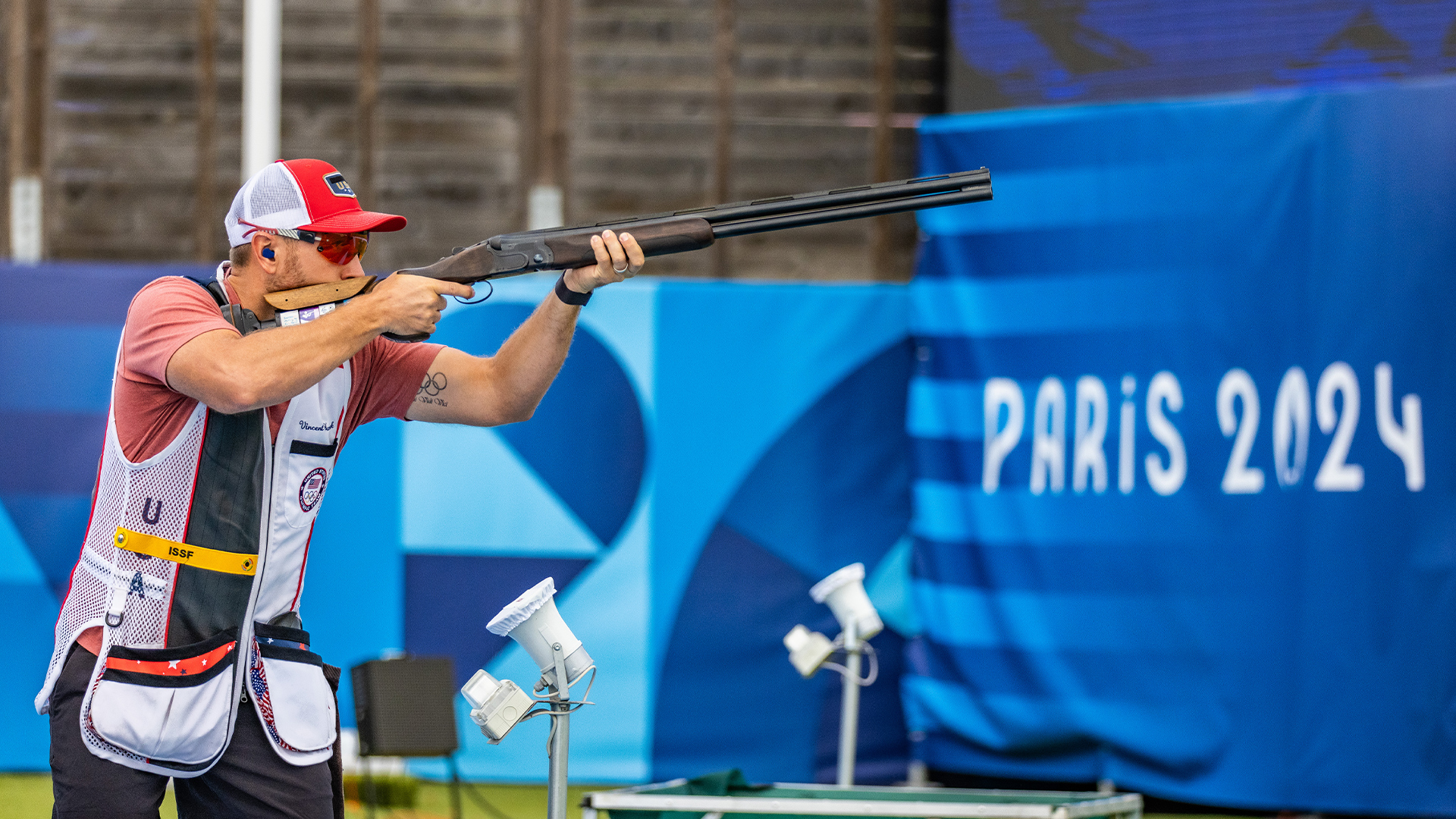
Hancock earned his spot among these elite Olympic athletes after triumphing in a hard-fought men’s skeet final that was a thriller for the ages. After four of the six finalists had been eliminated, it was down to Hancock and U.S. teammate Conner Prince for the gold medal. Upping the ante was the fact that Hancock is Prince’s shooting coach. Although Hancock held the lead for most of the final, everything was now on the line. After Prince missed his 54th shot, Hancock was perfect for his last four shots to capture his fourth gold medal. He missed only two targets in the men’s skeet final, securing victory with a score of 58 of 60. “This was the hardest one yet,” he said. “It seems like every time it gets harder.”
For Hancock, joining the likes of household-name American athletes like Carl Lewis and Michael Phelps is a dream come true.
“It’s pretty special for me because I love the Olympics,” Hancock said. “Carl Lewis is probably my favorite Olympic athlete—just watching what he was able to do, when he was able to do it, and what he’s been able to overcome and just being a true icon of the Olympic sports for so long is an incredible feeling. Then being able to compete alongside Michael Phelps at the 2008, 2012 and 2016 Olympics—seeing his progression and what he accomplished. What I’ve been able to do in this sport, win four golds and just have my name in the same breath as them—that’s special to me.”
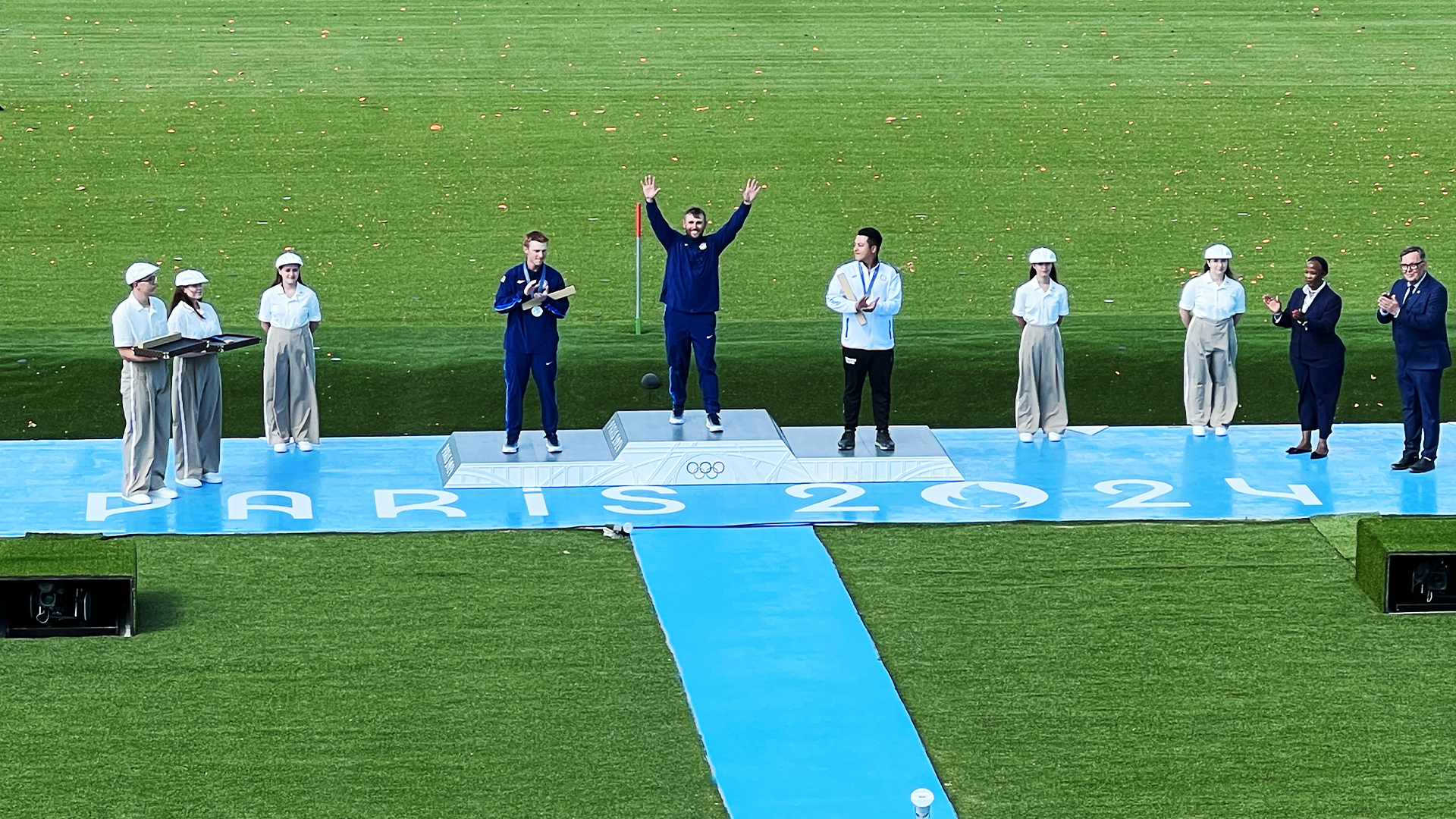
When asked if ending up with something other than a gold medal would have been acceptable to him this year, Hancock emphasized that a podium finish in an Olympic event is an important accomplishment for any athlete.
“I knew that coming into this, it’s a crapshoot,” he said. “With everything going perfectly, I’ll win gold. If it doesn’t, I can still win a medal. And that’s okay—because winning a medal at the Olympics is totally fine. Gold, silver, bronze, it doesn’t matter. You’re still an Olympic medalist and you’ll always be an Olympic medalist.”
Shotgun’s Next Generation
The Paris 2024 skeet events provided a glimpse at the future of U.S. shotgun competition at the Olympics. Two of Hancock’s pupils, Conner Prince and Austen Smith, both posted medal-winning performances. He coaches the two skeet shooters at Northlake Shooting Sports in Northlake, Texas, which he co-owns.
Hancock went head-to-head with Prince to close the men’s skeet final, which was made all the more compelling because the latter held the number one ranking after qualification. While the teacher beat the student in this showdown, Hancock was elated that Prince earned the silver, his first medal at his first Olympic Games.
“It was good to see him shooting the way he was and knowing I was going to have to bring everything I had in order to beat him,” Hancock said. “We’ve been going back and forth in practice for years now, and I was just focused on doing the best I could.”
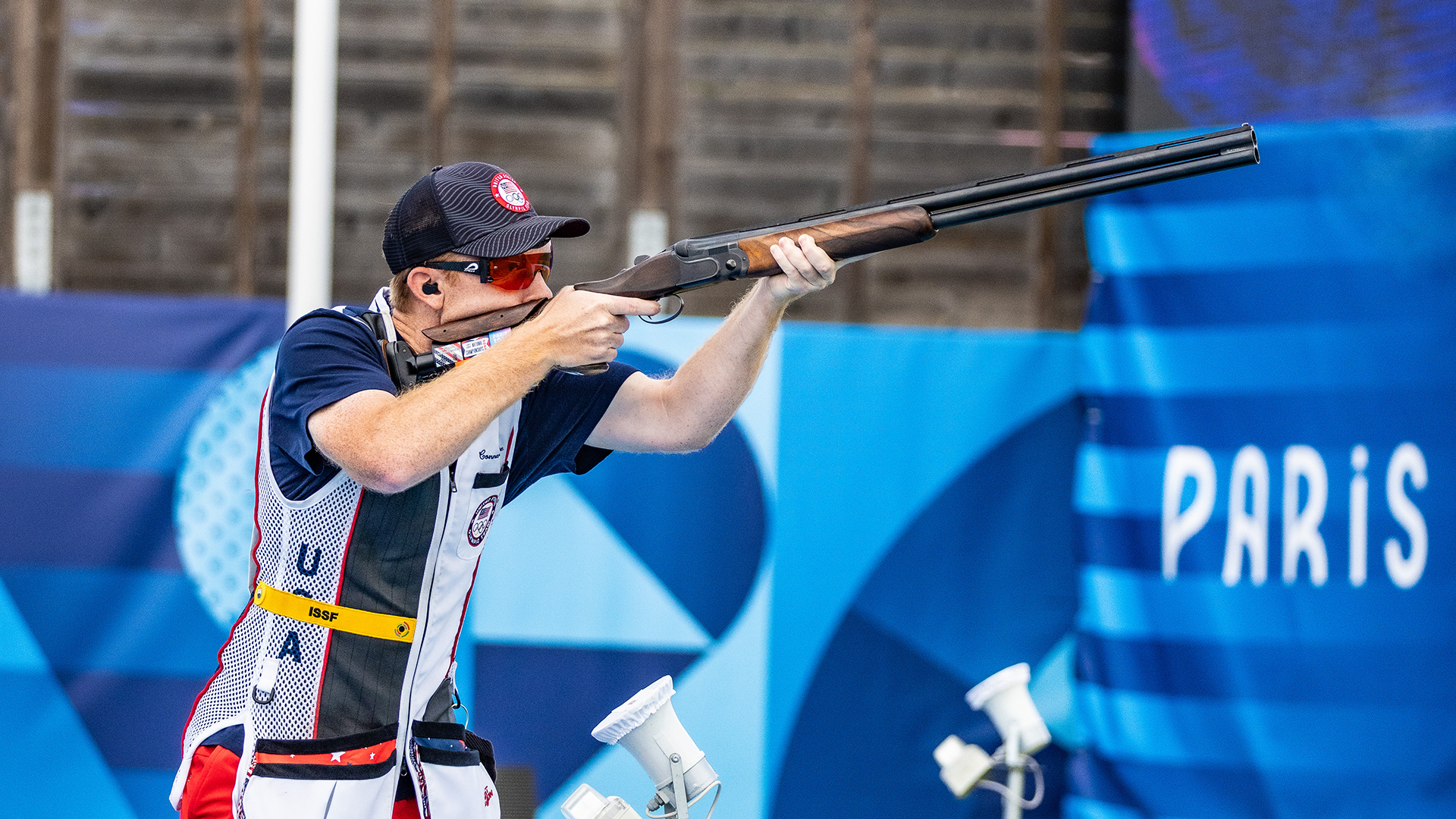
During the first series of shots in the men’s skeet final at station three, Prince missed his fourth target. He relied on a positive mindset and years of training to maintain his composure. Prince exited the final with 57 of 60 targets for the silver medal.
“If anyone says that they’re not nervous going into an Olympic final, they are probably lying to you, or superhuman,” Prince said. “I was quite nervous to say at least—I think all of us are. But after missing that target, I realized I needed to just take it one step at a time. One target at a time. That’s literally all we can do. We can’t change the targets we’ve shot in the past; we can only change what’s going to happen in the future. That’s what I was telling myself the whole time.”
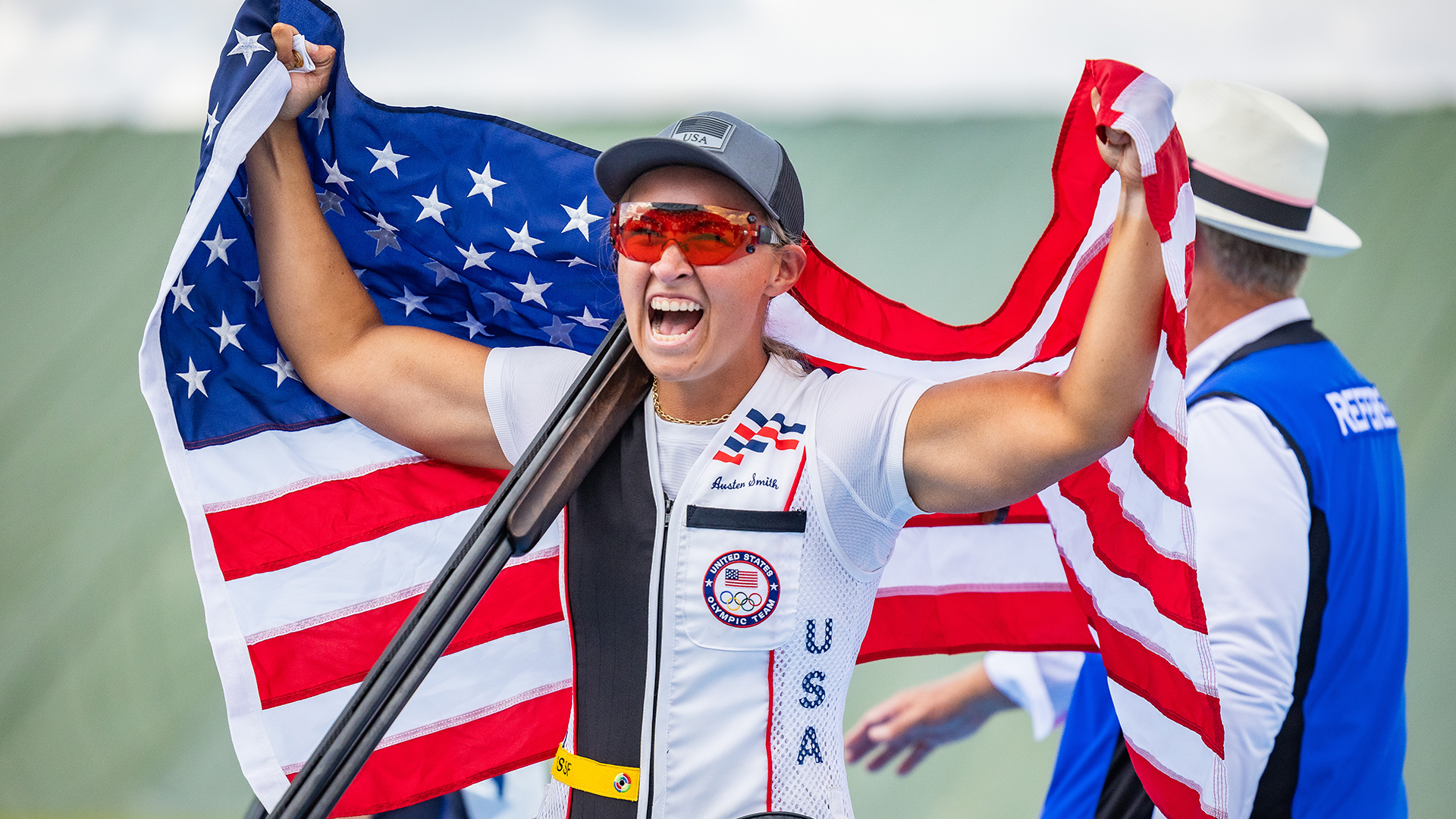
As for Austen Smith, she entered the women’s skeet final ranked number one. She earned the bronze with a score of 45 of 50 targets, her first Olympic medal after finishing 10th in the same event at the Tokyo Games.
“It has not sunk in yet at all,” Smith said. “I’m still waiting for it to sink in. I just wanted to get a medal no matter what at this Games. I was thinking about retiring after this, and this was kind of my last shot. I’ve got to go back to school, go start my career and get studying again. My only goal was to get a medal. I didn’t care what color it was.”
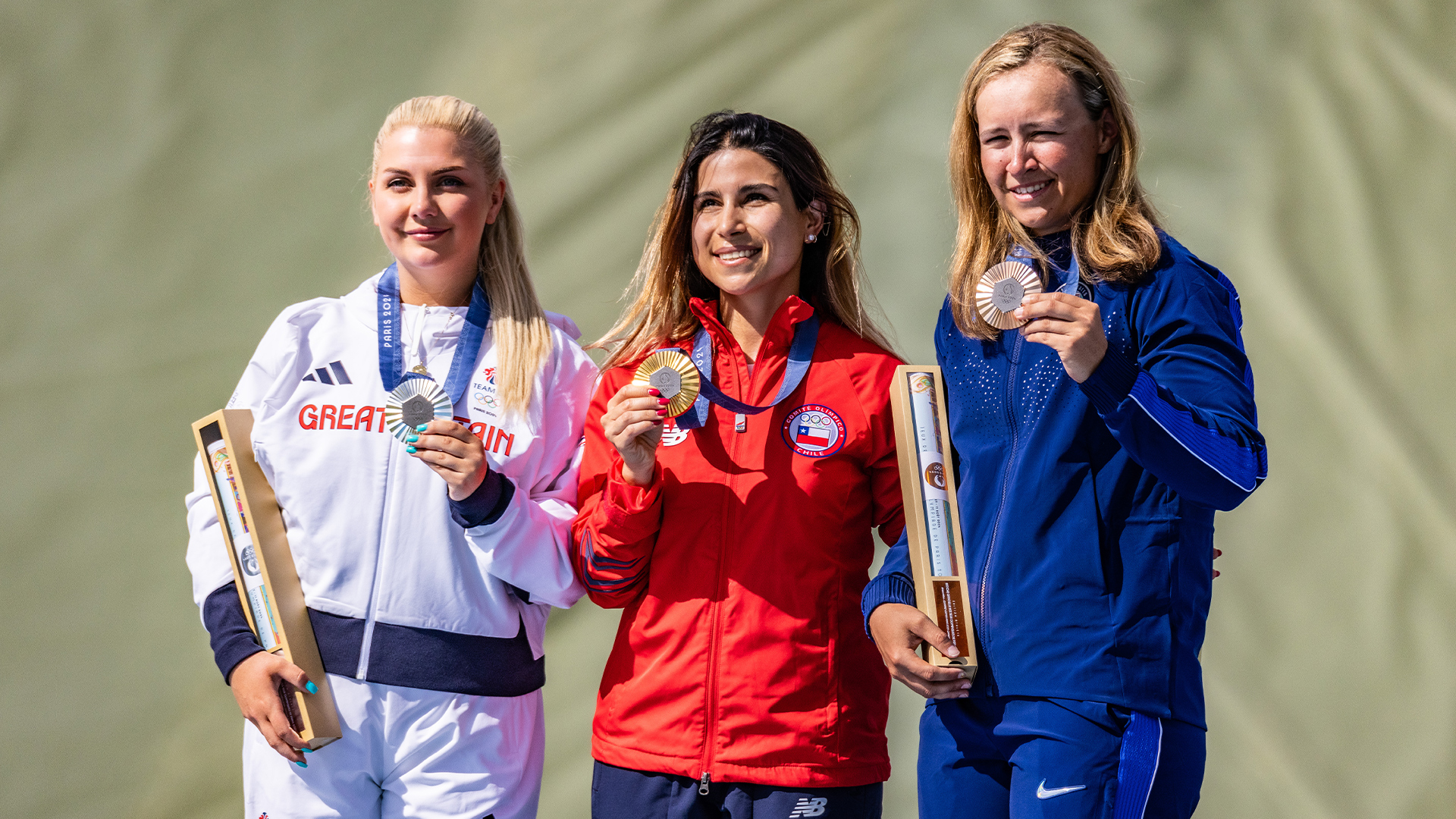
The last shooting event medal for Team USA came in the mixed team skeet event, which made its Olympic debut this year. The duo of Vincent Hancock and Austen Smith picked up a silver medal after shattering 44 clays, only one target less than the gold medalists, Gabriele Rossetti and Diana Bacosi of Italy.
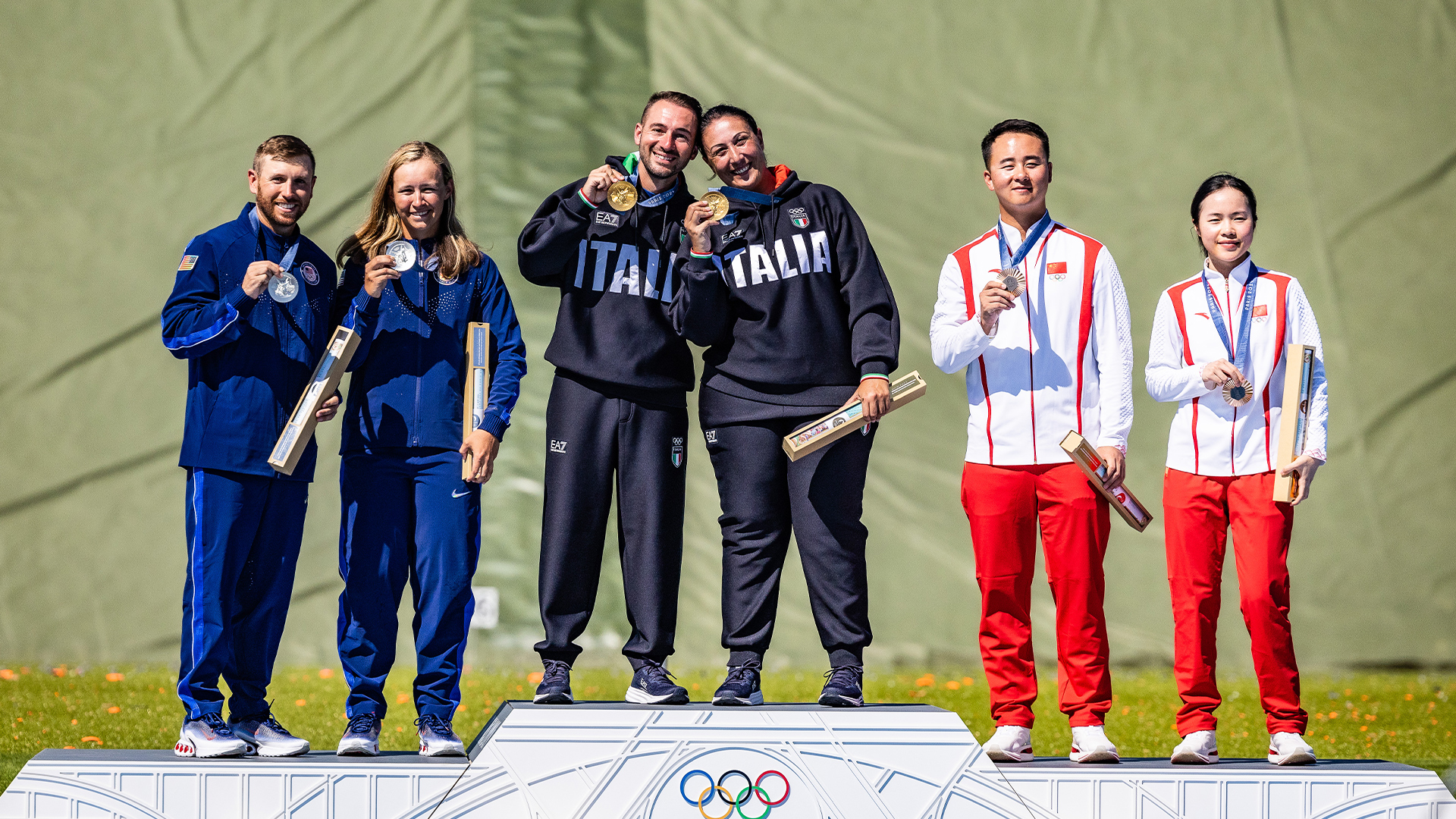
Hancock and Smith were the only two U.S. athletes to capture two shooting medals at the Paris 2024 Olympics.
“I’m extremely proud, just as a teammate, regardless of the fact that we’ve been shooting together for 10 years now. It’s just a lot of fun to go do this with her,” Hancock said. “She’s one of the best competitors I’ve ever seen come out of this sport, and we’re sitting next to a lot of other good competitors, too. To do this with her was a lot of fun.”
U.S. Shooting Olympic Medal Count 1964–2024
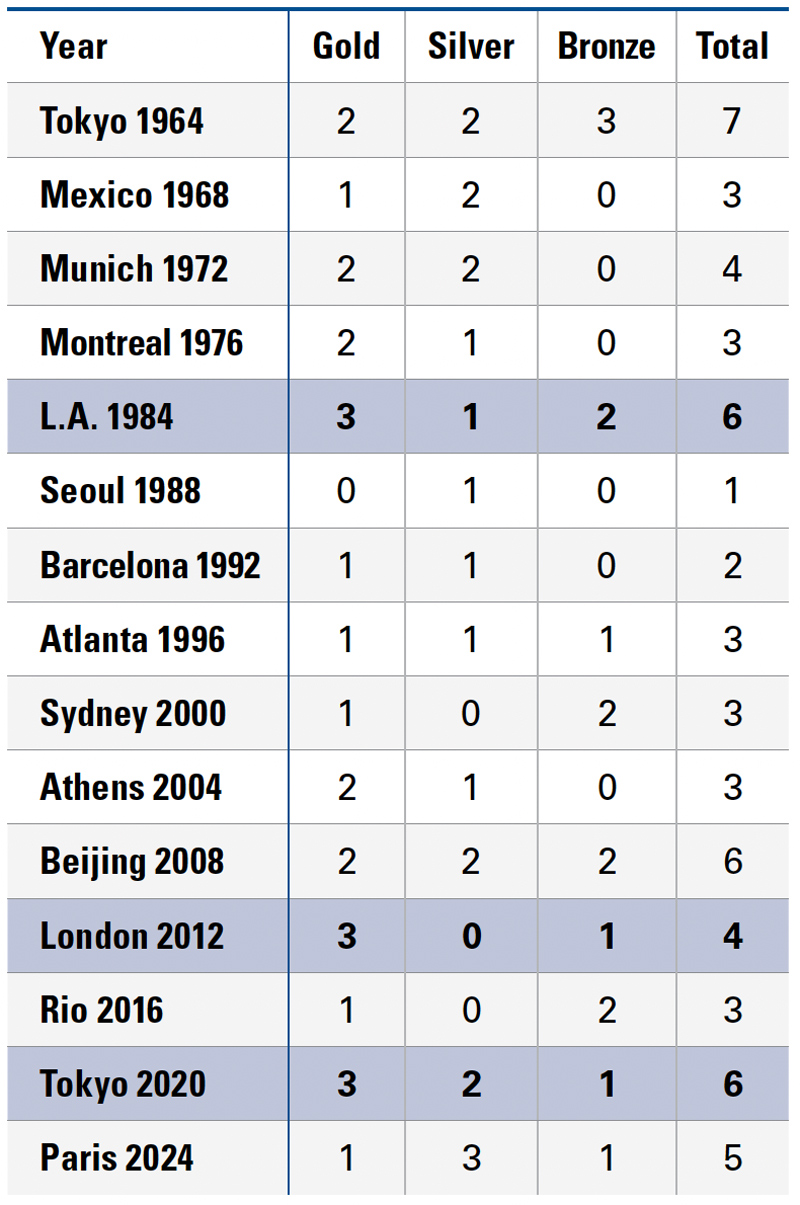
Looking To L.A. 2028
With the Paris Olympics now in the books, USA Shooting athletes have four years to prepare for the next Summer Olympic Games, which will be held a little closer to home. Since the next Summer Olympics will be hosted by Los Angeles in 2028, all eyes will be on the organization and U.S. shooting athletes as they compete on their home turf.
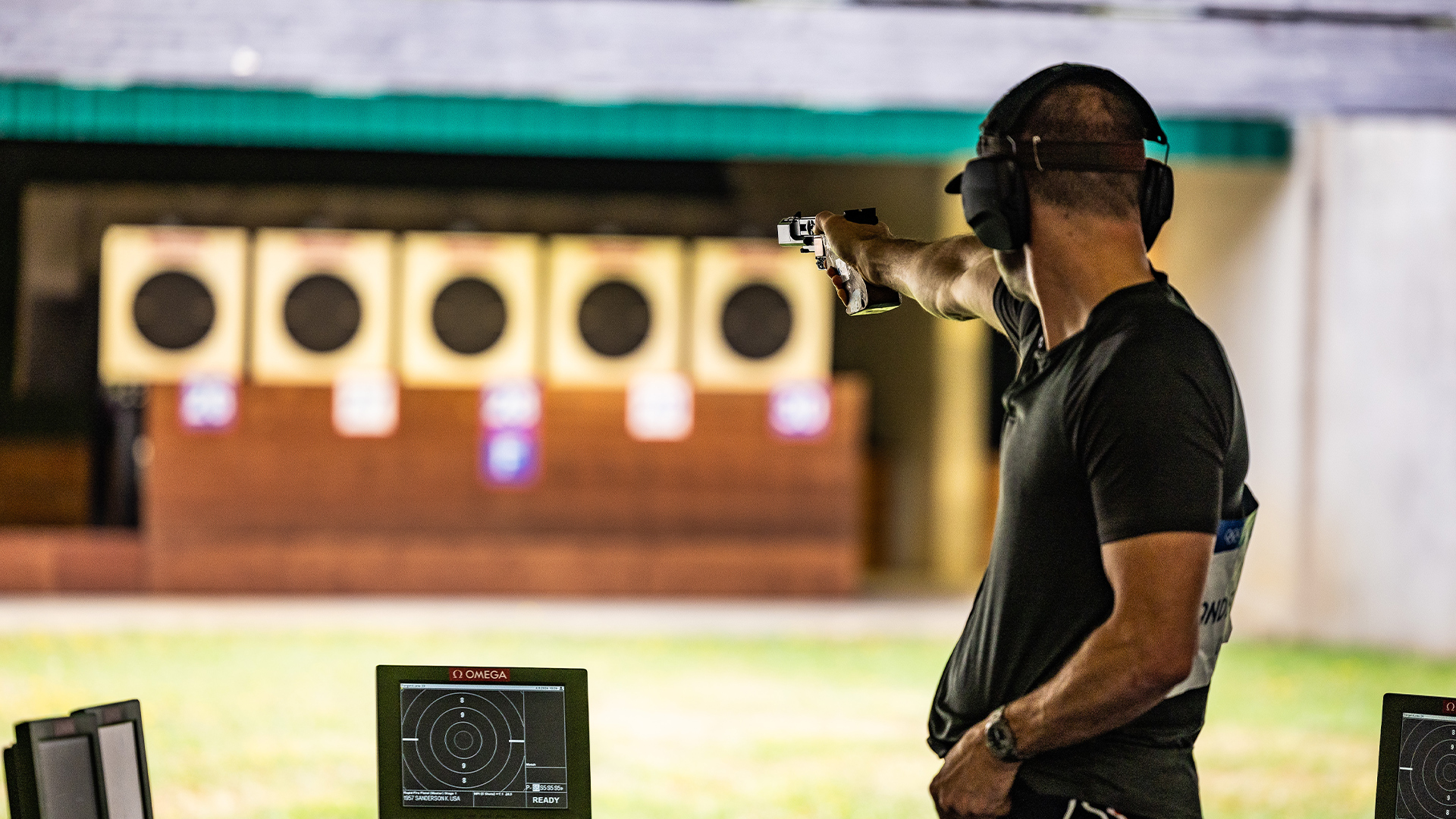
While in France, USA Shooting announced that interim CEO Kelly Reisdorf will continue in the role on a permanent basis. She is the latest chief executive after a revolving door of CEOs over the past several years. Reisdorf sat down with me for an interview in France during the Olympics. She intends to improve range access for athletes and escalate fundraising efforts, spending about half her time on the latter.
“I am very focused on our financials, increasing spending for athletes and more attendance at international competitions,” Reisdorf said. “I want us to have a larger presence in competition over the next quad to have an even stronger medal count showing for L.A. 2028. Fundraising is important to us, so that we can help these athletes get to as many World Cups as they possibly can. With increased funding, we can apply those dollars to our mission, which is to represent the country on the biggest stage.”
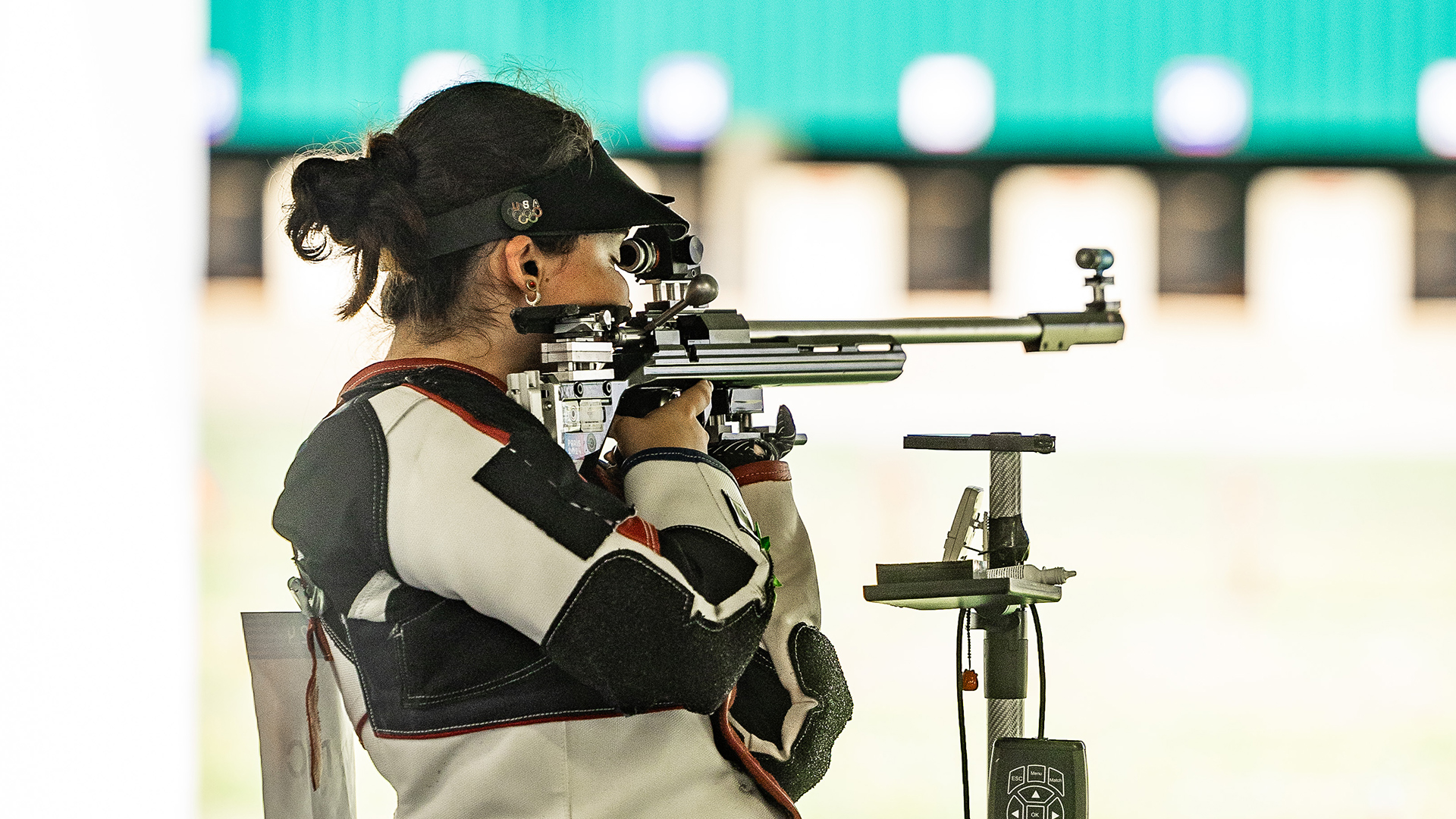
Team USA rifle shooter Mary Tucker offered a candid quote regarding the current state of affairs after walking off the line from her last event in France.
“I’m not really sure what to think of her. She hasn’t spoken to any of us, which is unfortunate. Hopefully [Kelly] does start talking to us and begin doing what she says she’s going to do. We’ve had a lot of CEOs in the past and no one has really helped us out very much.”
As we look towards the future, Los Angeles 2028 could represent a passing of the torch. Regarding his future in Olympic competition, Vincent Hancock told me he may have only one more Games left in him as a skeet shooter.
“The Paris Games have reminded me that I’m getting old. I’ve been doing this a long time … Los Angeles is there. And then that’s it for me.” Hancock said. “I was actually intending to probably retire after this [Olympics]. But with it going to be in Los Angeles, I would like to go back and compete in an Olympics on U.S. soil, because what better place to retire than on home ground and, hopefully, defend my title again.”
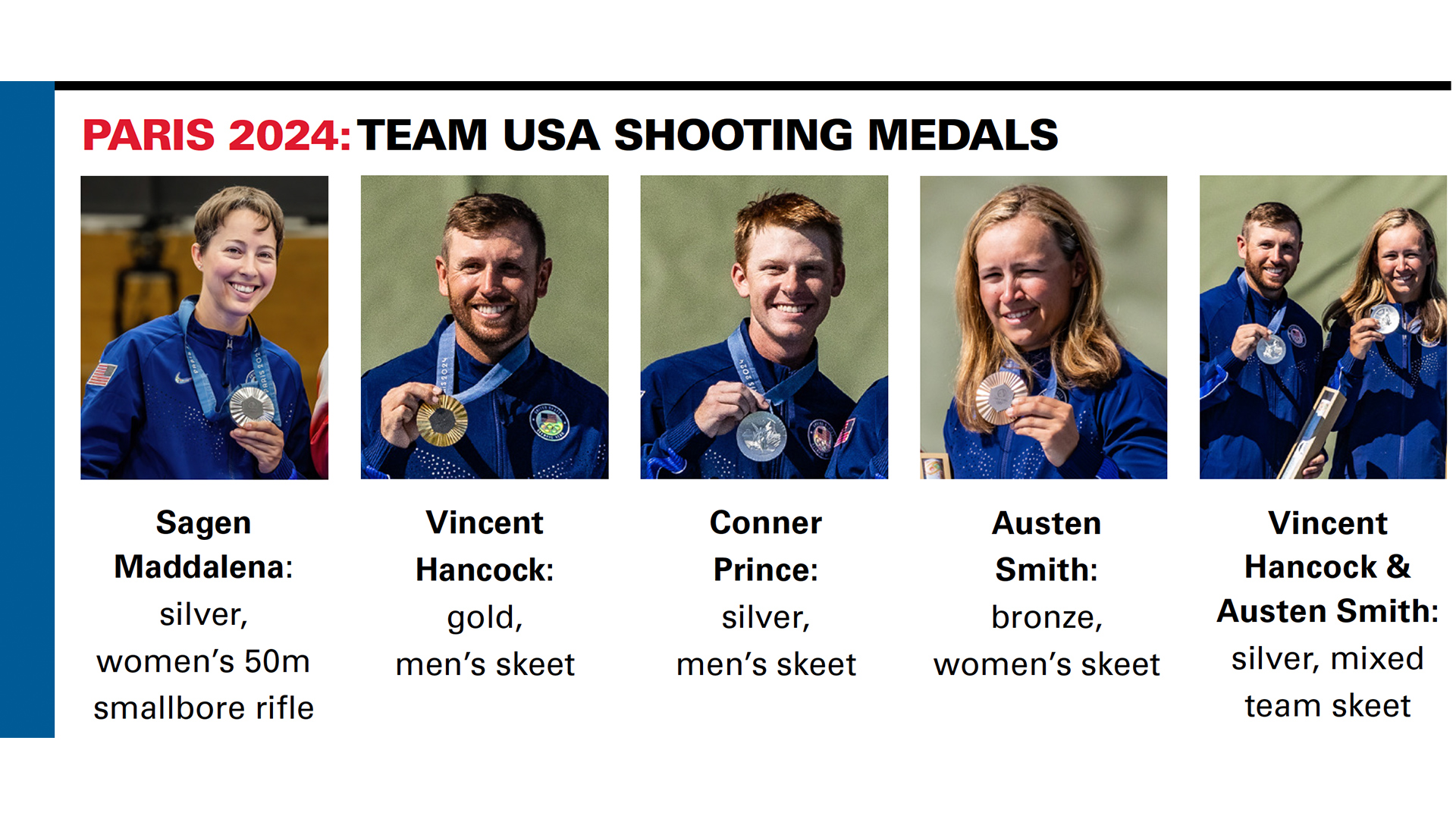
Walther’s KK500
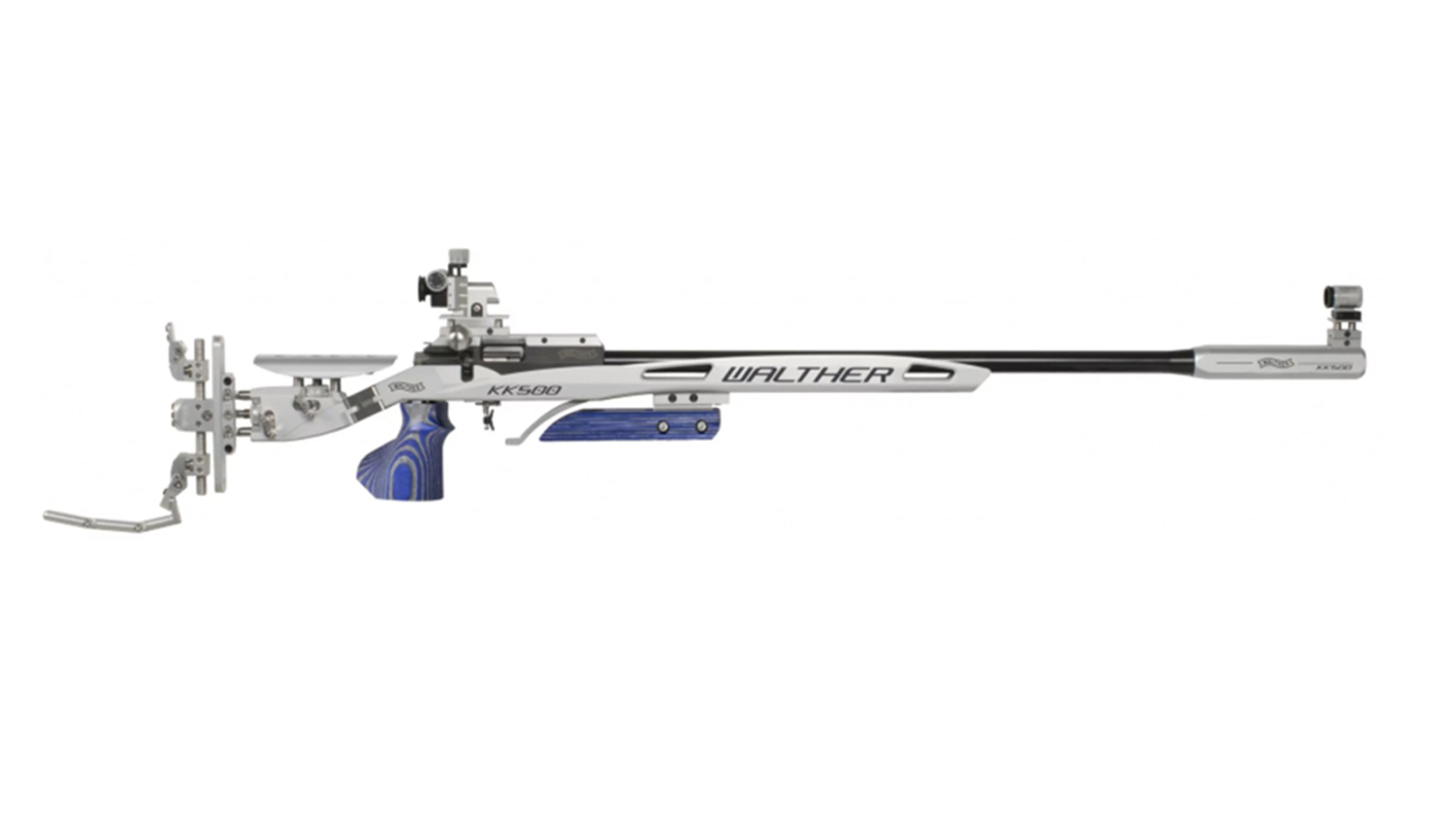
Walther has much to celebrate after four athletes shooting its venerable KK500 rifle posted podium finishes in both the men’s and women’s 50m smallbore events at the Paris Olympics. In women’s smallbore, Swiss shooter Chiara Leone clinched a gold medal and set a new Olympic record of 464.4 points. As for the men’s final, world record holder Liu Yukun of China won gold with 463.6 points, followed by Ukrainian Serhiy Kulish with 461.3 points for silver and Swapnil Kusale of India with 451.4 points for bronze. Walther’s KK500 now holds five world records, all three men’s smallbore medals and the women’s gold medal, plus an Olympic record.

